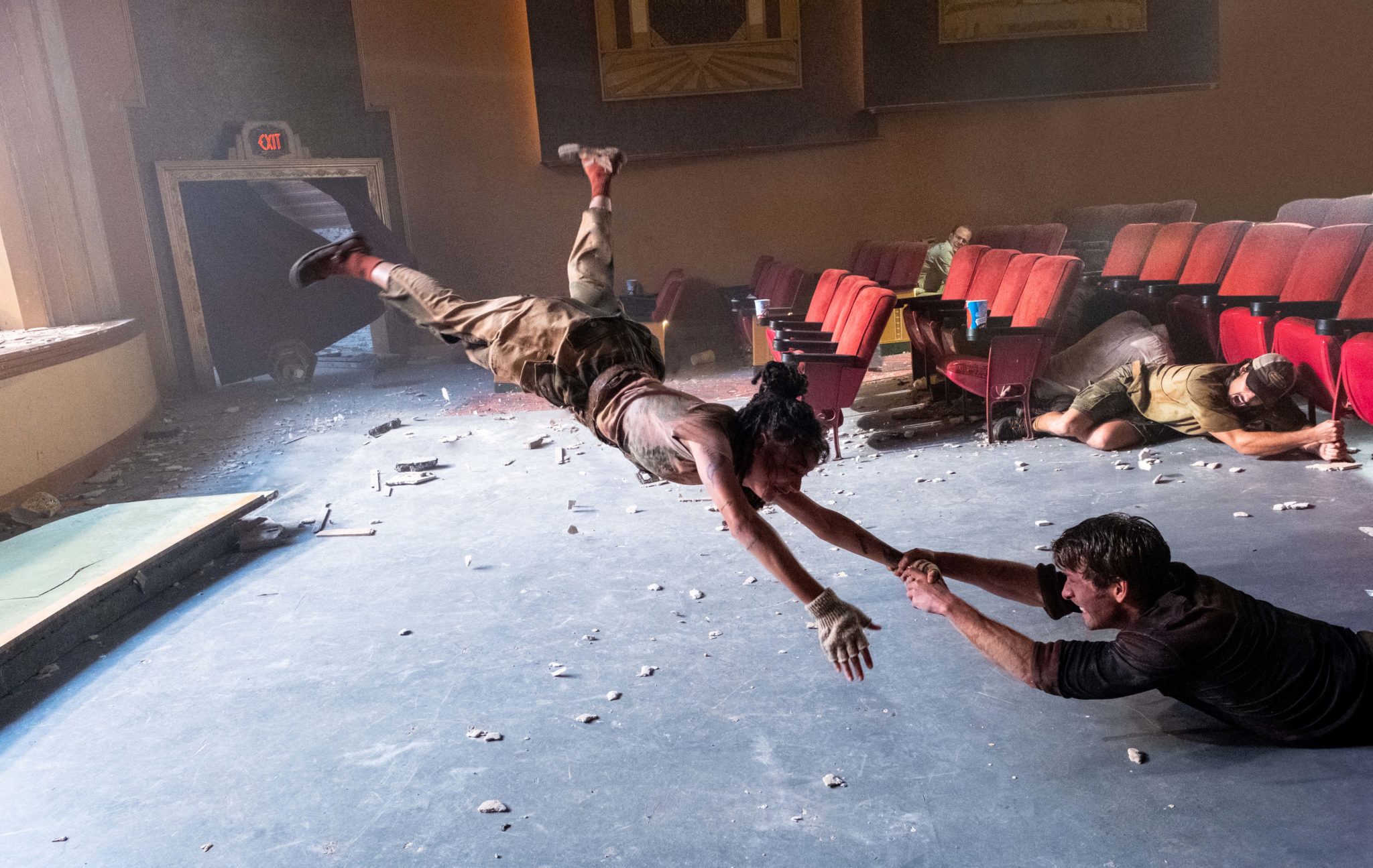- Film And TV
- 30 Jul 24

From disaster movies to personal drama, the start of the year has been marked by grappling with the past and warning us about the future...
With the dream/lie of America being a place of equality, freedom and hope never more in danger, it’s been interesting to see filmmakers put America in all sorts of peril onscreen.
This month’s blockbuster Twisters, a thematic sequel to the beloved 1996 action disaster film, marks a return to the environmental, ecological disaster movies that were huge in the ‘90s before disappearing when the issue of climate change and environmentalism became politicised in the United States, with Republicans denying the impact of global warming on extreme weather patterns. But now, disaster films seem to be returning, and it’ll be intriguing to see if audiences still find them as thrilling and escapist as before, or do they feel like a more stark reminder of how we need to protect our planet or it won’t protect us?

Lily (Sasha Lane) and Tyler (Glen Powell), in Twisters directed by Lee Isaac Chung.
A Quiet Place: Day One also featured an unannounced milestone, as the prequel to John Krasinski’s wildly successful 2018 monster horror movie shows the impact of an alien invasion on New York, a city that hasn’t been attacked or destroyed on screen in a major film outside the MCU franchise in decades; with San Francisco becoming the post 9/11 home of cinematic disasters.
Advertisement
Alex Garland’s Civil War has offered audiences the most political onscreen destruction so far this year, showing America riddled with meaningless violence and an oppressive regime run by a dictator. Showing us the country through the eyes of a veteran war photographer (Kristen Dunst), Garland’s film is careful to never assign clear political parties or motivations to his characters, instead showing the danger of polarisation generally, and the impact of what may be one of Garland’s last films is a stark reminder of how quickly a society can break down.
Of course, these are the American films that are looking to a possible future; one of the best of the year and indeed of the decade was Jonathan Glazer’s The Zone Of Interest, which looks unflinchingly at Germany’s past.

The Zone Of Interest
Glazer’s direction is masterful and horrifying as he depicts the mundane routine of the family of Auschwitz commandant Rudolf Hoss (played by Christian Friedel) who lives right beside a concentration camp. Hoss’ wife Hedwig (Sandra Huller) is seen dutifully tending to her beautiful garden as screams and smoke float above the camp’s boundary wall.
Glazer chooses never to see beyond that wall, but the ambient noise of the horrors is suffocating, showing what happens when people stand by and let cruelty reign. A focus on cleaning in order to conceal atrocity is contrasted with modern shots of staff working at the Holocaust museum at Auschwitz, who clean so that we can see history clearly and not repeat it.
Some of the other best films of 2024 so far similarly grapple with history, on personal and political levels. Fancy Dance, directed by Erica Tremblay and starring Lily Gladstone, is a quiet personal drama about Jax, a woman living on the Seneca-Cayuga Nation reservation in Oklahoma whose sister is missing. As Jax cares for her niece, the film shows all the ways that First Nations people have been disenfranchised and disempowered by a country that doesn’t care about the shocking numbers of Native women who are murdered or disappeared – and how families struggle to support each other.
Advertisement

Isabel Deroy-Olson and Lily Gladstone in Fancy Dance
An even more personal film and one of 2024’s stand-outs is Andrew Haigh’s All Of Us Strangers which stars Andrew Scott as a man grappling with the loss of his parents and his desire for love and connection. When he meets charismatic Harry (Paul Mescal), Adam moves into a world of memory, exploring how growing up in the homophobic 1980s and losing his parents affected him. A beautiful film which charts how we can move through grief and loss to love, its absence at the major awards ceremonies is an utter mystery.










